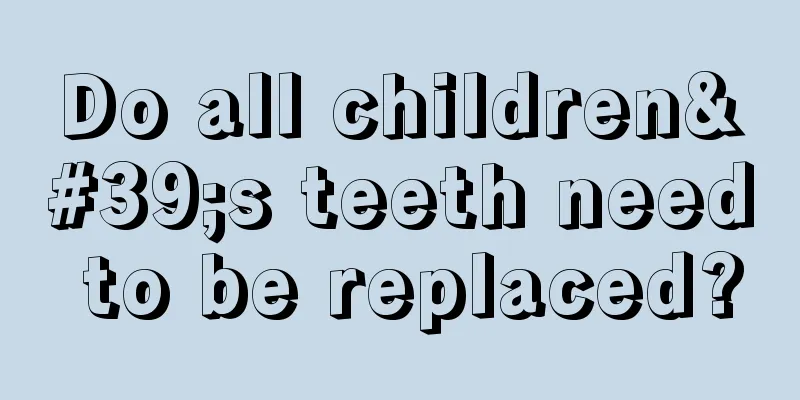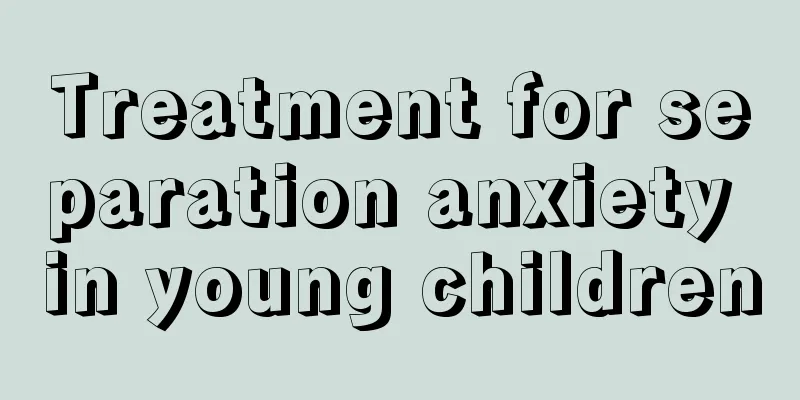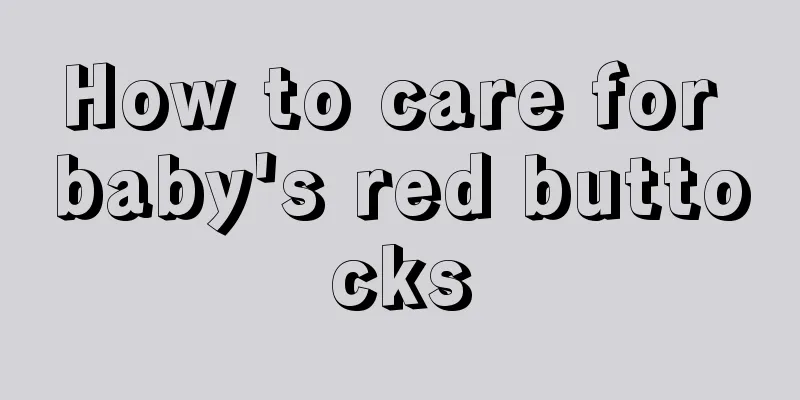Do all children's teeth need to be replaced?

|
When children reach a certain age, their teeth begin to be replaced. The deciduous teeth will gradually fall out at this time, and finally the adult teeth will grow. The newly grown teeth are stronger and stronger than the deciduous teeth, so you must have a corresponding care plan during the teeth growth period. Children's teeth will all be replaced, so during the process of replacing teeth, the mouth needs to be well cared for. During the baby's teething period, mothers must know these 3 situations! There is a certain pattern in the time when deciduous teeth fall out one by one, but the length of time for each tooth to fall out is not fixed. It depends on the position, development of the permanent tooth germ and the degree of resorption of the deciduous tooth root. If the loose tooth is not caused by external collision and it is time to replace it, it is generally not necessary to shake it frequently. This is because the absorption of the deciduous tooth roots is intermittent, and the deciduous teeth may be loose at times and firm at times. If the permanent tooth germ has not yet developed well and is still far from the eruption position, it is not good to artificially accelerate the shedding of the deciduous teeth. In addition, it is difficult to control the strength of shaking the teeth by yourself. Therefore, it is better to let nature take its course and wait for the teeth to fall out and be replaced normally. If the deciduous teeth are particularly loose and affect eating, you can ask a doctor to remove the teeth to avoid irritating the gums and causing gingivitis. In fact, normal deciduous teeth can promote the development of the jaw, maintain the position of permanent teeth, and guide the eruption of permanent teeth. If the deciduous teeth fall out prematurely due to caries or trauma, and the permanent tooth germs have not yet developed well and cannot erupt, the child will get used to chewing with the gums, which will become thick and strong, and easily hinder the eruption of permanent teeth. If deciduous canines and molars fall out prematurely, the adjacent teeth will shift to the gap, and there will be insufficient space for permanent canines and molars to erupt, which will also cause eruption difficulties. In addition, if the child has systemic diseases or hereditary diseases, it may also cause difficulty in tooth eruption, which requires a comprehensive examination to make a diagnosis. If permanent teeth do not erupt for a long time, parents must pay enough attention. Find out the cause and deal with it in time. If necessary, fenestration surgery may be needed to help the baby grow. If the deciduous teeth fall out prematurely, it is best for parents to take their children to the hospital for a check-up. If the deciduous molars are lost prematurely, a space maintainer will be needed to maintain the gap. There are many reasons for uneven teeth, which can be divided into two categories: one is congenital factors. For example, genetic factors. From the perspective of human evolution, due to changes in human life and eating habits, food has changed from raw food to cooked food, and from rough food to soft food. The functional stimulation of the chewing organs has weakened, and the chewing organs have generally shown a trend of degeneration. The jaw degenerates faster than the teeth. Therefore, crowded and uneven teeth are more common in modern humans. From an individual developmental perspective, a child's facial shape and tooth arrangement are often very similar to those of the father or mother. Abnormalities in the development of the number of teeth, congenital supernumerary teeth and missing teeth may also cause crowding and misalignment of teeth. On the other hand, there are acquired factors. Systemic factors include endocrine disorders, malnutrition, etc. The deciduous and permanent teeth are lost prematurely or fail to fall out or erupt. Various bad oral habits, such as sucking fingers, biting objects, biting lips, sticking out tongue, mouth breathing, bruxism, unilateral chewing, etc., may lead to abnormal tooth arrangement. Many times, multiple factors are present. There is currently no good way to prevent genetically caused deformities except with braces. However, there are some congenital factors and many acquired factors that cause abnormal tooth arrangement, which can be avoided or alleviated through regular examinations, early detection, and timely treatment. Such as timely extraction of supernumerary teeth, early correction of bad habits, and maintenance of gaps for prematurely lost teeth. During the period of teeth replacement, children may not be able to chew food, but even if they do not enjoy eating, they should be given a balanced diet. Caring parents can make vegetable soup, meat soup and other foods that are easy to chew and swallow for them to ensure that their body needs them. |
<<: How to turn the foreskin of a child
>>: How long can a child with hemolysis live?
Recommend
5 reasons why children always lose their temper with their parents
It is common to see children yelling at their par...
What to do if your newborn spits up
After a baby is born, the oral system is in the d...
The significance of education and rehabilitation training for children with autism
Autistic children are very common nowadays. There...
What are the effective methods for treating athlete's foot in children?
Athlete's foot is not just a disease exclusiv...
Boy's penis is red and swollen
Redness and swelling of the boy's penis is a ...
How to treat thrush in children?
Oral thrush in children is a situation that many ...
What to do if your child's face is bruised
Children are active by nature and may bump into t...
What are the symptoms of puberty in children
Children will undergo certain physical and mental...
Teenagers with many white hairs
Generally speaking, everyone believes that adoles...
Does the baby's hot hands mean he has a fever?
The baby's every move concerns the parents, e...
What is the reason for long white shifts on the body?
In life, many people are prone to white spots on ...
How to effectively treat trachoma in children
The impact of trachoma on children must not be ig...
What to do if your child is allergic to cold air and coughs
If a child has an allergic cough due to cold air,...
What are the reasons why babies cry and don't sleep at night?
There is a reason why babies cry at night. Check ...
What time is best for children to go to bed at night?
Nowadays, many young parents are prone to late sl...









